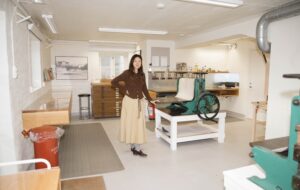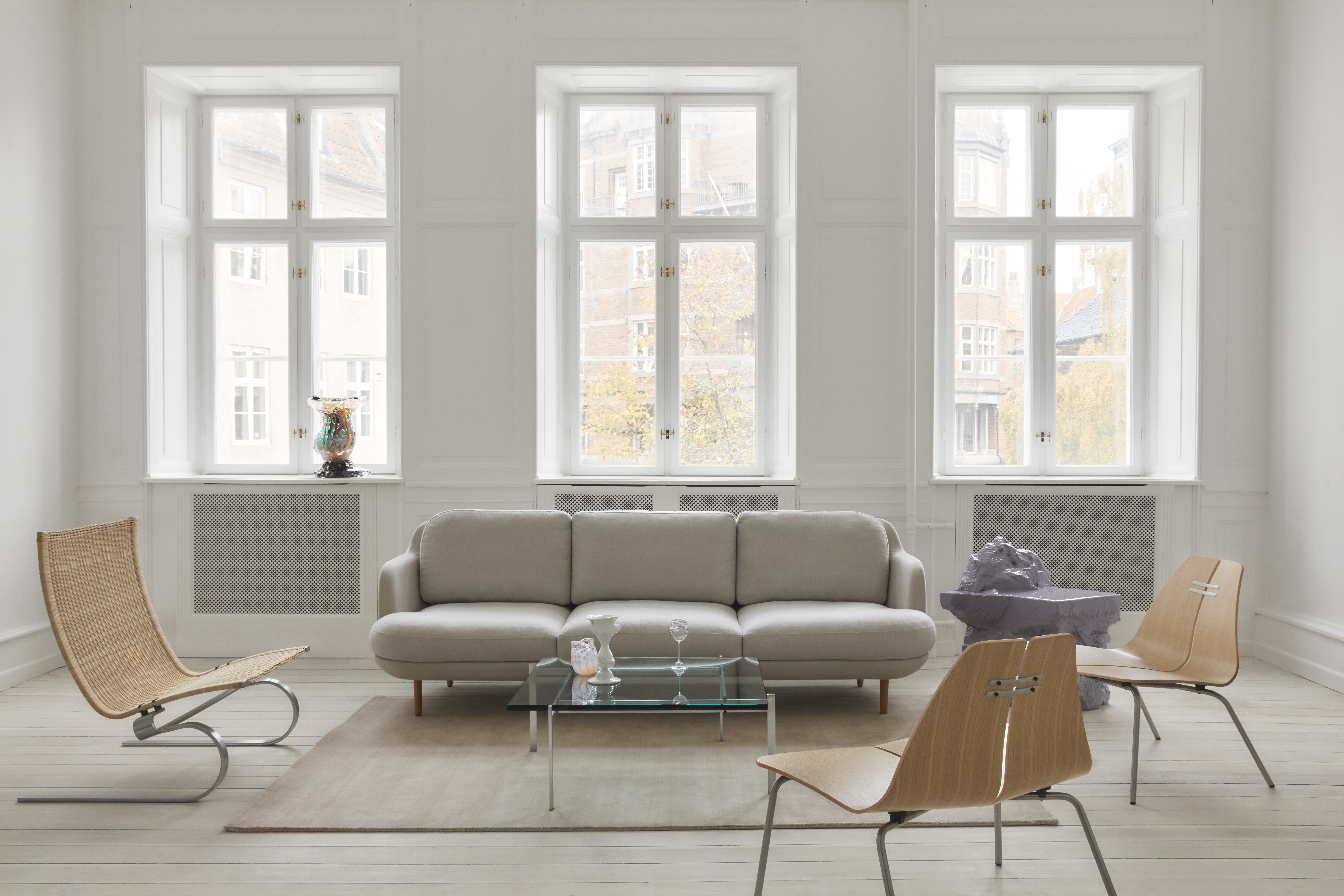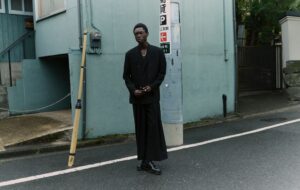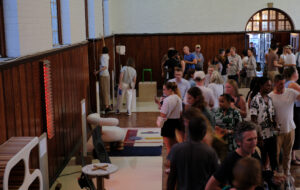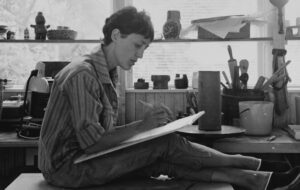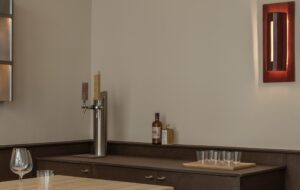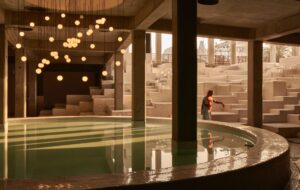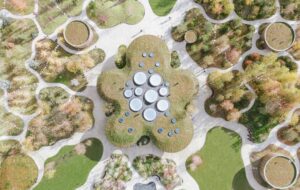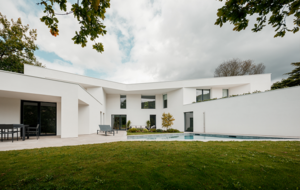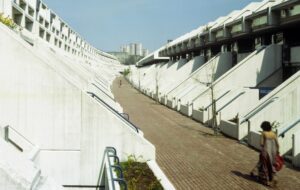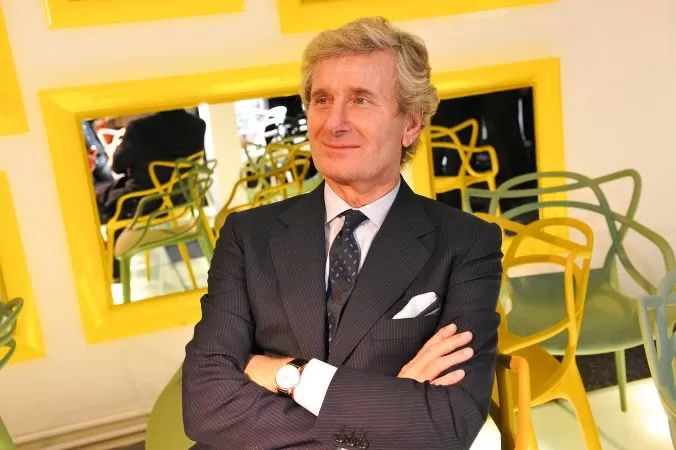 Claudio Luti is the returning president of Salone del Mobile and CEO of Kartell
Claudio Luti is the returning president of Salone del Mobile and CEO of Kartell
Salone del Mobile president Claudio Luti talks to ICON editor James McLachlan about how Expo changed Milan, innovation at the Fiera and the role of public/private pertnerships at design week
Claudio Luti is the CEO of Italian furniture brand Kartell and, since 2016, president of the Salone del Mobile. It is Luti’s second term as president. In 2013, he arrived, with a bold agenda for change, criticising hotels overpricing, the taxi system and even the exhibition’s ‘terrible’ website. Brimming with ideas and enthusiasm, Luti’s observations found welcome ears among the throngs of visitors that did battle with the city’s infrastructure every year. Within a year, Luti had stepped down for reasons that were never explicitly made clear, only to be reinstated last year.
Despite the twists and turns, Luti remains one of the most influential people in Italian design and his return was welcomed by the industry. Luti still harbours ambitions to improve the Salone, but he seems to be leaning towards incremental change rather than a drastic, all-encompassing shake up of the system. At a press event this February, Luti unveiled a manifesto that identi ed what he saw as the strengths of Milan: creativity, entrepreneurialism, culture were some of the main themes. Icon met with Luti in the build up to this year’s Salone to discuss the upcoming event, the quality of design education, and why the 2015 Expo opened his eyes to greater collaboration between the public and private sectors.
ICON I wondered, why the manifesto?
Claudio Luti: I wanted to communicate the strengths of the Salone del Mobile. Why? Because, first of all, the companies that are working around Milan are different to all the other companies. They take more risks, innovate and create and give more possibility to the designers to create a project. The designers are freer because we take risks with the engineers and we try to follow the creativity – not just to move the machine. That is the di erence between the Italian approach and German, France, England, China. We have the Salone, but also we participate in what goes on in the city. That is very, very important. For example, one month ago I was in Cologne for the fair and was just a normal commercial fair, not a lot of innovation.
ICON In the last few years, we’ve seen some large companies (Samsung, Audi) spend a lot of money on installations in the city. Is this a distraction from the fairgrounds?
CL A distraction? No. When people are in Milan, they can experience some nice cultural events from Samsung or another company. I feel that it is so important that a small city like Milan has these attractions during the Salone del Mobile. It’s incredible, because we are a very small city, but in that week, we are the capital of the design world. 300,000 people visit during the Salone, but personally, I don’t care if there are 300,000 or 350. We need the most important designers, the most important dealers … if I see a million people who are just looking, then it doesn’t matter! It’s not the number, it is the quality.
ICON There was as a lot of talk, not just from you, but from the other panelists, about the need for greater cooperation between the private and public sectors in Milan. What can the city do to push the Salone forwards?
CL Personally, I am very open to work together, private and public. In politics… everywhere. Normally, in Italy this is di cult to do. After the EXPO (in 2015) the public and private sector has been working more closely. We start to speak with the political people and they are very frank. They say: “Yes, no.” And I feel that for Italy, this is the first time we have discovered it is possible to make this kind of a system. We are not like the British, or the Germans who are used to working in this way.
ICON And how might this work?
CL We speak a lot about, ‘Salone is Milan, Milan is Salone’. Milan needs the Salone so it is important that Milan does everything it can – maybe give us space on Piazza del Duomo to make an event; maybe how to deal with the traffic. For me, the Expo changed things. It was very strong but very di cult to do and it showed that if you public and private work together, it’s easier to succeed. It seems very easy to say, but for us we discovered something. It is not political from the right or the left. If we do it well, it’s good for everybody. Milan is the only city in Italy which can work in this way.
ICON You mentioned that schools and the professional world need to be better connected. Is there a skills shortage in the industry? A gap between higher education and working world?
CL In my company, for example, I take people that are coming from this university. Eight, six, nine, ten. And I train them for six months just to try to understand if they can work with us. If they had more connection with work before, it’s easier. We had poor education at a technical level for the last 20 years. We are weak at teaching technical skills. I feel that we have to educate people that technicians, makers is a fantastic job, something to be proud of. Ultimately, if you want to remain a manufacturing power, as we are in Italy, you need technicians.
ICON Going back to the public/private partnerships. How do you see the role of Triennale during Salone? Does there need to be greater engagement from that institution with Salone?
CL I hope, because Salone is the reality. The country is reality. We need the support of the company like Triennale – a cultural support for design, which only the Triennale can do at this moment. There is no other entity that can work in that direction, but they cannot do alone, they are not strong enough so we have to work together. If we want to be a capital of creativity and design, we need an institution for that is pushing for 12 months a year.
ICON Do you see parallels between the London Design Festival where the Victoria and Albert museum becomes the central hub for the duration of the festival.
CL This, I would like.
ICON In the past you’ve talked a little bit about making Milan more logistically easy to navigate and looking at the hotel room prices and the taxis system? Is this still part of the agenda?
CL We are trying with the mayor, but it’s difficult, because there are some rules that we cannot change. Now with the mayor and trying to improve the traffic, but it’s not easy. Because they don’t permit us to do anything. We just make a suggestion, but a suggestion is just a suggestion!
ICON So is the criticism fair?
CL Absolutely, I think it’s fair. But we need to have a system that we agree on.
ICON Can I ask you about the Shanghai Salone del Mobile? It has doubled in its second year. Is the plan to continue to grow?
CL At this moment we have a very nice place, in the centre of Shanghai, and we have a good representative for Italian companies. At the moment it’s fantastic, because is number of company that makes a selection of goods, and it’s a good representation. So for the moment, for the next year, absolutely we maintain the same space in the same way.
ICON And was it di cult to convince the Italian furniture makers to go to Shanghai?
CL No, no. It was a success from the beginning. Everyone, they know that China is the great potential. It is not easy to penetrate but has great potential. With that exhibition I feel, it is just one step for everybody to see this situation and export. They foresee the numbers growing.
ICON What lessons you may have taken from 2017 that you’ll bring to 2018?
CL I feel that we have to grow, but with in the same way, we don’t want to change. I would like to retain the quality and try to export more. People arrive at Milan to do business, and we just have to believe in that and invest. There are a lot of opportunities and there are a lot of new countries, but it isn’t just the Salone but what happens after it.
ICON On that, unemployment is currently 7% in Milan. How far has Italy and Milan recovered from the crisis?
CL I feel like Milan is outside the crisis. Recently, the Mayor of Milan said, ‘If in Italy, if they don’t follow Milan, Milano will have to go it alone!’ But Italy is not outside the crisis. The south has a lot of problems and now with the new elections we have to see what happens because it’s not the time to give money to everybody, it is the time to give work. That is the difference.
ICON Much was made of Milan’s outward facing, globalist attitude during the conference. How much is Brexit part of your conversation?
CL We don’t have any idea what happen.
I have business in England and I hope we can continue it. But we don’t know exactly what the agreement will be. We read in the newspaper one day it’s easy, one day it’s difficult! We have two years that we don’t know what we have to do. For me, it’s crazy, of course, because England is part of Europe and Europe is diminished without England. I know that there are other problems – everyone wants to have control of immigration, but for me Brexit is without sense.

